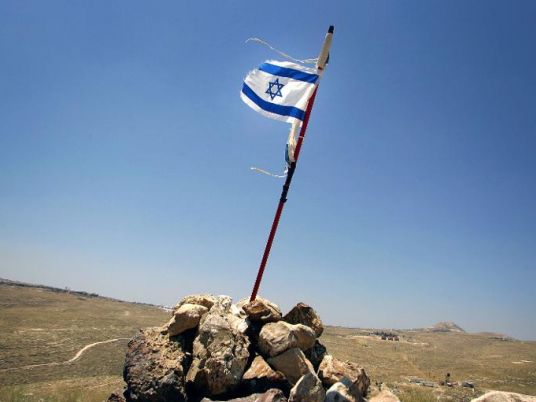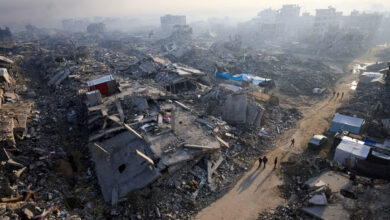
Israel launched an offensive against Islamist Hamas in the Gaza Strip on Tuesday, bombing some 50 targets, including homes, in a campaign meant to end Palestinian rocket fire into the Jewish state.
The Israeli military urged Israelis within a 40-km (24-mile) radius of the southern coastal territory to stay within reach of protected areas and ordered summer camps shut as a precaution against rocket fire.
The military said it targeted about 50 sites in aerial and naval assaults. Palestinian officials said more than 30 of them were bombed in little more than an hour before dawn, including two homes in southern Gaza, one of which was identified by a neighbour as belonging to a Hamas member.
Nine people suffered shrapnel injuries. There were no other reported casualties because the buildings were believed to have been evacuated beforehand.
Witnesses said a house bombed in Khan Younis was flattened. The Palestinian Health Ministry said nine neighbours were wounded by debris from that strike.
The Palestinian Interior Ministry said the family in the targeted home had received a telephone call from an Israeli intelligence officer asking them to leave the house because it would be bombed, and the family evacuated in time.
Military spokesman Lieutenant Colonel Peter Lerner said Israel was preparing for the possibility of sending ground forces into Gaza as part of the campaign, which it has dubbed "Operation Protective Edge".
"We are mounting the forces to enable us to mobilise if required. I can't see that happening immediately but we have a green light to recruit more reserve troops that will enable us to carry out a ground mission," Lerner told reporters.
Hamas' armed wing threatened an "earthquake" in response to Israel's attacks.
In a statement, the group denounced Israel's bombing of houses as "exceeding all red lines" and threatened to shoot rockets at longer distances. "We will respond by broadening the range of our targets," the militants said.
Lerner said Gaza militants had fired more than 80 rockets at Israel on Monday and military officials said more than 200 rockets had been shot at Israel in the past month, an enormous increase in shootings.
SECURITY CABINET DECIDES
Prime Minister Benjamin Netanyahu's security cabinet decided on Monday to step up air strikes against militants in coastal Gaza. Political sources said ministers stopped short of ordering a ground offensive for now.
Netanyahu had earlier pledged "to do whatever is necessary" to restore quiet to southern Israeli communities although he cautioned against any rush towards wider confrontation with Hamas, whose arsenal includes long-range rockets that can reach Israel's heartland and its business capital, Tel Aviv.
Far-right cabinet ministers pressed for a firmer response to silence rocket fire. Foreign Minister Avigdor Lieberman quit an alliance with Netanyahu's party citing dissatisfaction with Netanyahu's policy on Gaza.
The surge in violence has raged since the kidnapping and killing of three Israeli youths last month in the occupied West Bank and a Palestinian teen last week. Israel has arrested six Jewish suspects over the latter case.
Air raid sirens wailed as far north as the outskirts of Tel Aviv and Jerusalem on Monday night. Israeli police said those were false alarms but the military said rockets had triggered alerts as far as 80 km (50 miles) away, the farthest of the latest crisis.
Two Israelis were wounded in Monday's rocket strikes.
Hamas claimed responsibility for firing rockets at Israel on Monday for the first time since a 2012 war with Israel that ended in an Egyptian-brokered truce.
The group's death toll on Monday had also been the highest Hamas suffered since the 2012 fighting.
Hamas spokesman Sami Abu Zuhri accused Israel of committing a "grave escalation" in violence and threatened to retaliate, saying Israel would "pay the price."




